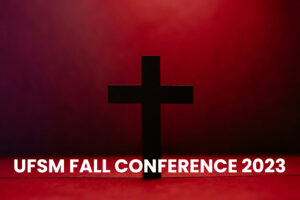“ The Spirit Himself bears witness with our spirit that we are children of God,” Rm. 8.16
“For as many as are led by the Spirit of God, these are sons of God.” Rm. 8.14
To become a child of God is to be born of the seed of Christ, and become a member of the household of God and heir of eternal life. In becoming a child of God one now stands at the threshold of the Kingdom of God, now able to eat of the Tree of Life, which is Christ.
To become a son of God is to bear the fruit of spiritual maturity, be an overcomer, and qualifies one to walk in the function and purposes of God and His Christ, both now and in the age to come.
Being a child or a son defines both what one is and what one does. They are distinct as a 5 year old born into a family and a 40 year old man or woman having a family of their own. We must now make a spiritual distinction.
The first man, Adam, was created not as a babe or child, but as a full grown, mature man. God intended to have someone that had some level of understanding, to be able to handle a degree of responsibility in this newly created earthly kingdom, and be able to commune with a God who is spirit. He was to be created not as a god, but in the image and likeness of God, therefore enabling him to relate to both the physical realm as well as the spiritual. Thus Adam, though a physical man, also had a spiritual component to him that allowed him to have a relationship with God, his creator. With his soul he touched the world about him, but with his spirit he touched the heavenly realm. This means God and Adam could relate and commune with one another. For example, Adam could understand that his creator God wanted him to have “dominion,” or to oversee this earthly kingdom (Gn. 1.26); he could understand the important principle of “the seed” of life in both plants and animals (Gn. 1.29-30); to have a wife of which God called his helper or complement, with whom he could have a “relationship;” and to have a close “relationship” with God Himself. Adam was given understanding of how to work in harmony with nature, to plant and reap a harvest (Gn. 2.15).
In addition, this first man was given a likeness of God called a “will,” with which he could make important choices, some of which regarding life and death decisions. And to this last matter we know that Adam chose to be disobedient to God, his will being in opposition to the will of God. In union with Eve, his complement, they defiantly ate of the Tree of the Knowledge of Good and Evil—a fateful decision that affected all of mankind yet to come from their seed. Adam did his own thing, and walked away from God’s purposes. So, instead of eating from the eternal Tree of Life, he set a new path for all mankind, one in which he would decide for himself moral goodness and evil, righteousness and lawlessness. One can see this spirit of disobedience operating today. Most of the world’s peoples, and even many “Christians,” refuse to receive the righteousness embedded in the Bible, the Word of God, and choose rather to follow their own moral thoughts. It was disobedience when Adam did it, and it is the same disobedience today. Both obedience and disobedience will eventually bring its consequences.
In keeping with this same principle of maturity, all plants and animals were created fully mature, not sown as seeds, or as fertilized eggs. God chose maturity with which to begin all things, and the seed with which to carry on subsequent generations, whose end product is, now and always, maturity. Fullness of life and relationship can only be achieved in maturity. A child may be innocent, but being immature he/she is also very self-centered, and oft foolish in decisions, goal making, and unable to reproduce a new generation. It is only in maturity that a son or daughter can truly love and serve God and mankind with some measure of the same love and grace with which He blesses man.
Spiritual Adolescence
A father may have a relationship with his children, but the nature of the relationship will change as the children mature. A child is immature, self-centered, and given to fanaticize about reality. They like to play games, and hear stories or fables. To them, the Bible is a book of stories, of Adam and Eve, David and Goliath, Noah’s ark, Moses leading the Israelites through the parted sea, and stories of the life of Jesus. A child has their senses dulled, unable to comprehend weightier matters…whether earthly or heavenly. A father or mother makes no attempt to unload upon them matters weighing heavily upon them regarding the economy of the household or matters of life and death or long-term planning. These things are left to a more mature mind.
Spiritual adolescence in the church today is seen in the same measure. What many call spiritual is not spiritual at all. Its people are being trained, tutored, and mentored to follow Biblical principles in an outward fleshly manner totally blind to its spiritual realities. To the spiritually adolescent mind, the Bible is largely seen as an historical account of the Israelites, the life of Jesus, and the apostles. Sermons are focused on behavior conduct and duty to the church and society. The fruit of The Tree of Knowledge of Good and Evil is being served as personal opinions by teachers and pastors, of their view of morality. They explain love as something touchy/feely, an emotion; tolerance as overlooking bad behavior and just accepting each person for what they are; forgiveness as uncondemning, freely distributing the mercy of God as non-judging judges; homosexuality, abortion, and perverted sexual behavior as just personal choices and lifestyles; and regarding sin in general, they simply whitewash it, covering it with a blanket verse, “For all have sinned and fall short of the glory of God,” Rm. 3.23 and say simply “we are all sinners saved by grace.” They portray heaven and hell in a mythical way, quite distinct of its scriptural reality.
Scriptures have much to say about “kids just being kids,”
We have much to say about this, but it is hard to explain, because you are dull of hearing. Although by this time you ought to be teachers, you need someone to reteach you the basic principles of God’s word. You need milk, not solid food! For everyone who lives on milk is still an infant, inexperienced in the message of righteousness. But solid food is for the mature, who by constant use have trained their senses to distinguish good from evil. Heb. 5.11-14
At a church conference once, I was talking with a well-respected, long-time minister in the wee hours of the morning about some very serious and weighty matters of bringing spiritual maturity to the church. He said to me that such teaching, “is too heavy, the people will not receive it. We have to ‘lighten up.’” In other words, just serve up a hardy portion of refreshing milk, the meat is too tough, difficult to chew, and hard to digest. His thoughts was that the Church should be light-hearted, a place of refreshment, not an overly solemn place with words of death, holiness and righteousness.
Our Father in heaven, and Lord Jesus Christ, desires to have a relationship with His children and members of His Body, the Church. Even I, as a father, wanted a relationship with my children. But in their immaturity I could only provide for them and protect them. To relate to them I had to come down to their level of understanding. We played games together, games silly to me but fun to them. We read stories, fables, untrue but fun for them to hear. They were not at all interested in things in which I was interested. To think about or do adult activities was quite distant, and had to wait for maturity to set in. It didn’t seem like such soberness would ever come. To some I have known it has never come—they are adolescents in adult bodies.
Spiritual Maturity
The time eventually came when my children began to mature as a son and daughter, and with this maturing process the family relationship changed. Of course filial love remained the core of the family relationship, but out of this relationship they began to assume some family responsibilities on their own…sometimes even without being asked to do so. They even began to contribute to the decision making in family affairs. Their focus began to shift away from themselves towards others. My son went hunting with me, learned to split firewood, and helped with various home projects. My daughter began hosting family gatherings, she even gave me a couple of my favorite bread recipes. When I was their age, I began to be incorporated into my father’s business, assuming many responsibilities. I even negotiated a lucrative business contract for him while he and my mother were away on vacation. A relationship with a son or daughter is much different in nature than when they were children.
This kind of relationship grew as my daughter and son married and had families of their own. And now, at this stage in our lives, my wife and I find ourselves giving our daughter and son what is known as the power of attorney over our lives, that if as we age or fall ill to the point that we can no longer make rational decisions for ourselves, they can legally make those decisions on our behalf. Our lives might literally be in their hands. And then, regardless of what the future may bring, they will inherit all that we may have. If, however, parents that feel their children remain foolish or childish in thought, immature, the inheritance would be put in the controlling hands of a firm or some counsel to mediate the inheritance.
The transition of this line of thought to spiritual maturity is not difficult. As children, born of God (please refer to Jn. 1.12-13) we are under His provisional care called grace. Certainly, “For it is by grace you have been saved through faith, and this not from yourselves; it is the gift of God, not by works, so that no one can boast.” Eph. 2.8-9 And again, “(God) has blessed us in Christ with every spiritual blessing in the heavenly realms. Eph. 1.3 Also, “His divine power has given us everything we need for life and godliness through the knowledge of Him who called us by His own glory and excellence. Through these He has given us His precious and magnificent promises, so that through them you may become partakers of the divine nature.” 2 Pet 1.3-4 As children, He has made all necessary provision for them so they may become established in the Kingdom of God.
It was in a similar manner when the children of Israel were delivered out of Egypt by His grace and power. This kind of relationship with the living God was new to them. So in their youth God provided for their greatest needs. They were preserved from thirst by God making sweet the waters of Marah, (Ex. 15.22-25) and again causing water to pour forth from the rock at Horeb. (Ex.. 17. 1-7) He preserved them from hunger by providing quail and manna. (Ex.16) God miraculously preserved them from defeat by the Amalekites. (Ex. 17. 9-16) This was the grace of God to this people, delivered out of Egypt but even before the giving of the covenant.
But after the covenant between God and the Israelites was established at Mt. Sinai, a new relationship was established. Something was expected of them, God said, “Now if you will indeed obey My voice and keep My covenant, (then) you will be My treasured possession out of all the nations—for the whole earth is Mine. And unto Me, you shall be a kingdom of priests and a holy nation.’ These are the words that you are to speak to the Israelites.” Ex. 19.5-6 God desired a people to mature as responsible sons and daughters, to conduct their lives in an acceptable way, and to establish His kingdom in their midst. The end product of God’s workings in the earth is maturity, always maturity. The Israelites were “born” out of Egypt but not born spiritually as those under the New Covenant of Christ. Thus, His Covenant with them was of a different nature but the goal is the same…maturity.
A Biblical Distinction
Thus far allusion has been made to a Biblical distinction between a child and a son. Now please bear with me as a simple foundation is laid without becoming overly technical. The Greek Bible translator uses the word teknon to describe the word for children in English translations of the Bible. Tekon or child usually means one living in child-like dependency. In a similar manner the Greek word huios is translated son (equally refers to female believers (Gal. 3.28)) Huios or son usually refers to one sharing the same nature and purpose, as the father (or emphasizes the likeness of the believer to the heavenly Father), and highlighting the (legal) right to the Father’s inheritance. The problem remains that sometimes Bible translations translate huios as a child and not as a son, so its significance is not always apparent to the reader. In addition, not all languages support this distinction in terms. For instance, the Spanish Bible uses hijo (son) to translate either huios or teknon. Thus, Bible references or a good teacher is needed for accuracy in bringing out this distinction—especially where it really matters in Bible interpretation.
A child thus lives in a state of dependency of his father whereas a son rises to usefulness in the father’s household or business. For example, in the parable of the prodigal son (Luke 15:11-31), a father had two sons. The younger was solely focused upon himself, his wants, and needs. He asked for his part of his inheritance and quickly went about to squander it upon his lusts. Soon the inheritance was gone and he found himself living in squalor. He decided to return to his father and simply live there as a worker (servant) to have his basic comforts met. However, when he returned to his father’s household, it seemed not for a relationship with his father, but he was still only concerned for his own welfare. Regardless of his childish and selfish behavior the father still whole-heartedly gladly welcomed him back for he was forever his child, born of his seed. The love of the father remained constant.
The attention of the parable then shifts to the older son. The elder son was jealous of the attention now given to his younger brother. He said to his father, “Lo, these many years I have been serving you; I never transgressed your commandment at any time; …. Lk. 15.29 At this point in the parable many interpreters criticize the elder son citing jealousy in his heart for the father giving his young brother a feast upon his return. Laying the root cause for this remark by the elder son aside, for now, let us rather focus our attention on the fact that the elder son was a son (huios) in the true aspect of its meaning. He was faithful to the father these many years, serving him, keeping his commandments. He showed maturity in character, being responsible, making good judgments. He was just returning from a hard day’s work in the field when he heard the celebration going on. To the elder son, it appeared as though his younger brother was being rewarded for immature, selfish behavior.
So, this wealthy landowner had these two offspring. He loved them both with a Fatherly love. The younger, acting like a child, squandered his inheritance in a reckless and foolish manner. Nevertheless, he remained a child of his father and was cared for. He would always have a place in the Father’s house. The elder son conducted himself as a son in its true Biblical sense. He incorporated his life into that of his father’s. He became a part of the family business, being obedient and faithful all his years. He was given responsibility and authority in the family business. The younger, who acted the child, wasted his inheritance but was still being cared for because of the love of the father. But to the older, the one who conducted himself as a true son, the father said, “Son, you are always with me,’ the father said, ‘and all that is mine is yours.” Lk. 15.31 It is very interesting to note that the word translated son in this verse is actually taken, meaning child. Though the elder son will receive the full inheritance of the father’s estate, in the father’s heart he, as well as his younger brother, will always be his child, of his seed, and be the center of his love. The elder son did righteous by living in obedience and faithfulness to the father. He received the fullness of his inheritance. The younger was unrighteous and squandered his reward, but remained in the love and care of the father, but he had no further inheritance, nor higher purpose in the Father’s household.
A Look into Eternity
“If anyone builds on this foundation using gold, silver, precious stones, wood, hay, or straw, his workmanship will be evident, because the Day will bring it to light. It will be revealed with fire, and the fire will prove the quality of each man’s work. If what he has built survives, he will receive a reward. If it is burned up, he will suffer loss. He himself will be saved, but only as if through the flames.” 1 Cor. 3.12-15
In the United States many have risen out of poverty, opportunity, and broken families to achieve success in life, regardless of gender, race, culture, and even physical limitations. There is equal opportunity for all but not all can or will take advantage of this privilege. The reasons cited are many, too many to dwell upon here. Many evils exist that prey upon people from the highest positions of government to the local neighborhood and even in one’s own family. Nevertheless, in spite of all of this, freedom to choose and the opportunity exists. Regardless of the level of achievement, each individual is always an American and abides under the protection and banner of this great country.
The greatest distinction in the Kingdom of God is the absence of evil “in the Kingdom.” There are evils in this world, and much darkness, and strong lusts of the flesh, but none of this is powerful enough to keep the child of God from maturing as sons and daughters and achieving (overcoming) in this heavenly realm. Yet, this evil wreaks havoc in people’s lives, so much so, that what begins as a glorious birthing of the Spirit of God, ends in a life of wood, hay, and straw, all to be burned up in the age to come.
I do not want to appear to be aloof from temptations and enticements of this world and the evil one, but it is difficult for me to comprehend how, one truly born of God, and becoming a child of the Highest God, could remain or continue in gross sin. There is scripture, “Anyone born of God refuses to practice sin because God’s seed abides in him; he cannot go on sinning, because he has been born of God. 1 Jn. 3.9, It is so powerful and so true, yet the consciences of some are so weak and dulled, their faith so weak and malnourished, that they live in such grossness as a pig wallowing in the mud. They may put on a façade of Christianity, but inwardly they remain as a little child, subject to the demands of the flesh, incapable of acting upon the grace of God. As an example, I cite the young Corinthian man living in sexual immorality with his father’s wife. Paul instructs the church to, “hand this man over to Satan for the destruction of the flesh, so that his spirit may be saved on the Day of the Lord.” 1 Cor. 5.5 This young man will enter the age to come without merit, barehanded, and naked of any value—he will suffer loss, much forfeiture. But he himself will be saved, but only as if through the flames.
At the opposite extreme is the apostle Paul’s declaration in his final days, “I have fought the good fight, I have finished the race, I have kept the faith. From now on there is laid up for me the crown of righteousness, which the Lord, the righteous Judge, will award to me on that day—and not only to me but to all who crave His appearing.” 2 Tim. 4.7-8
It is not “a” crown, but it is called “the crown of righteousness,” it is the crown to which righteousness can lay claim—that is, the crown awarded to righteousness. Righteousness is not difficult to understand. It is a life pleasing to God. It is the product, the fruit of the Spirit of God working within us— “for it is God who is at work in you, both to will and to work for His good pleasure.” Phil. 2.13
The crown won in the cause of righteousness, is conferred as the reward of one’s conflicts and efforts in the cause of holiness—a life set apart to God. It is not a crown of ambition; it is not a garland won in struggles for earthly distinction; it is not a seniority award in honor of years of participation in the Christian religion; it is only that which is the appropriate reward of one’s efforts to be personally holy, that is, to be set apart to God, to His principles, His purposes and His calling.
The crown of righteousness means that crown, the possession of which, marks the wearer as righteous before God. The analogous phrases are, “the crown of glory” (1 Pet. 5.4) and “the crown of life” (Jam. 1.12; Rev. 2.10) The righteousness, the glory, and the life of believers are conceived as displayed in crowns, much as the kingly dignity is in his royal crown. It is the incorruptible crown of 1 Cor. 9:25. It is not a literal crown, but a distinction of honor, glory, and life placed upon the believer. One’s eternal life is enshrouded in these superlatives: honor, glory, and life.
A child is born and nourished under the grace and benevolence of God. A son is reared in union with the Holy Spirit to bear fruit of faith, which is righteousness.
Something for God: A Family and a Bride
Paul prayed thus for the saints, “I ask that the eyes of your heart may be enlightened, so that you may know the hope of His calling, the riches of His glorious inheritance in the saints, and the surpassing greatness of His power to us who believe.” Eph. 1.18-19 The Father will have gained His family of mature sons and daughters, those with whom there is a filial relationship—which includes the responsibilities, feelings, and relationship that exists between a son or daughter and their Father in heaven. But for the Son of God, Our Lord Jesus Christ, an eternal bride is given, as is declared in this heavenly scene,
“For the Lord our God the Almighty reigns. Let us rejoice and be glad and give Him the glory.
For the marriage of the Lamb has come, and His bride has made herself ready.
She was given clothing of fine linen, bright and pure. For the fine linen, she wears is the righteous acts of the saints.” Rev. 19.6-8
This heavenly declaration closes with the announcement that the Lamb’s wife has made herself ready. Then follows the explanation of this readiness: she is adorned in fine linen. Her clothing is in contrast to the harlot: it is not purple and scarlet (Rev. 17.4, 18.16) but pure white. The symbol is explained: “the fine linen is the righteousness (or, righteousnesses) of the saints.” The character of the white linen indicates the character of the wearer. The Lamb’s wife is clothed in pure and stainless white, symbolic of her faithfulness and those high, moral, spiritual qualities by which she has been known. The source of these righteousnesses is divine. It is no fictitious or symbolic righteousness: it is real, it is hers, though it would never have been hers for Him without whom she can do nothing. (Jn. 15.5)
Thus, as we look forward to eternity, let us lay aside the myths of some mystical serene heavenly dwelling place and soberly anticipate Peter’s exhortation, “But according to His promise we are looking for new heavens and a new earth, in which righteousness dwells.” 2 Pet. 3.13The promise of the new heavens and new earth is given in Isaiah 65.17 and 66.22 and its fulfillment is revealed in Revelation. 21.1.





